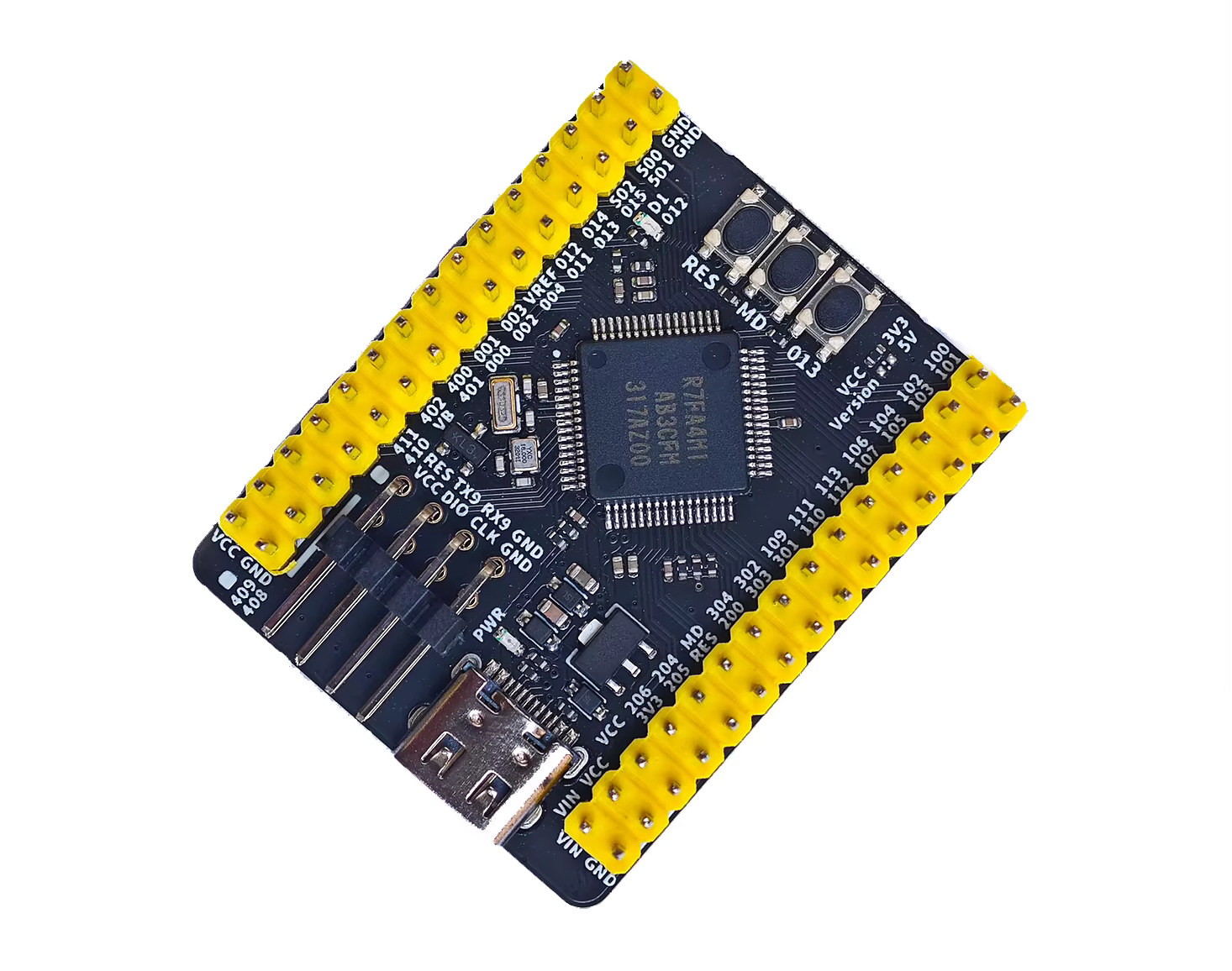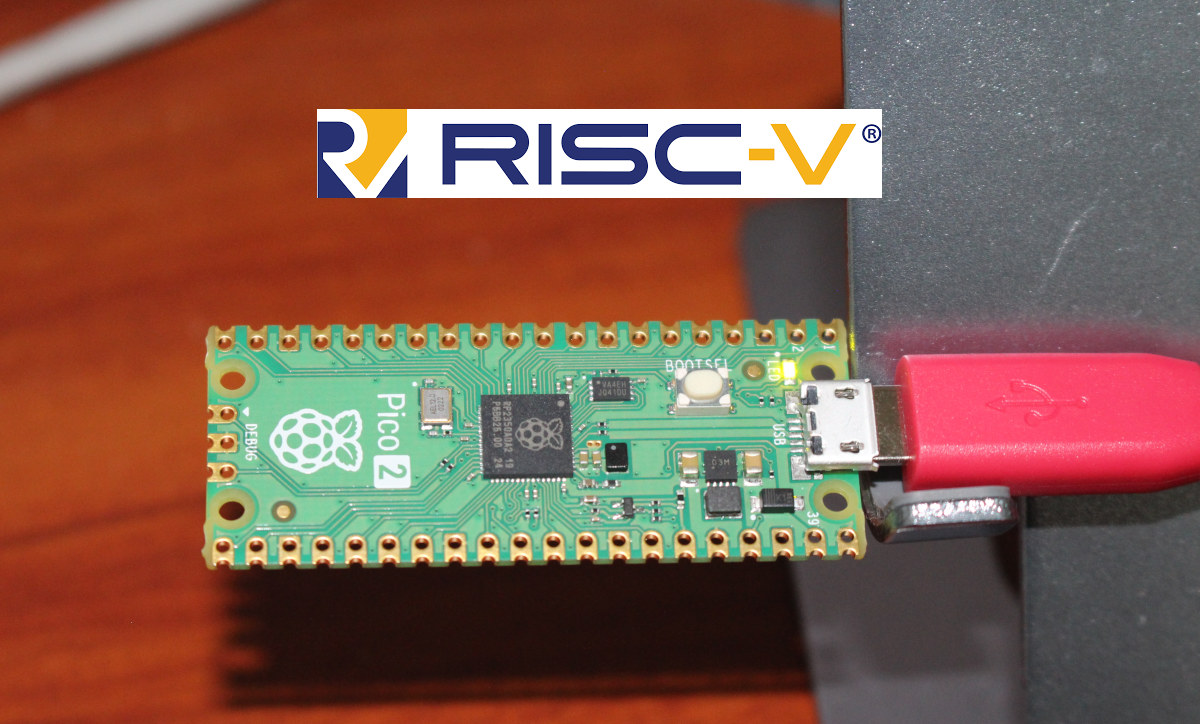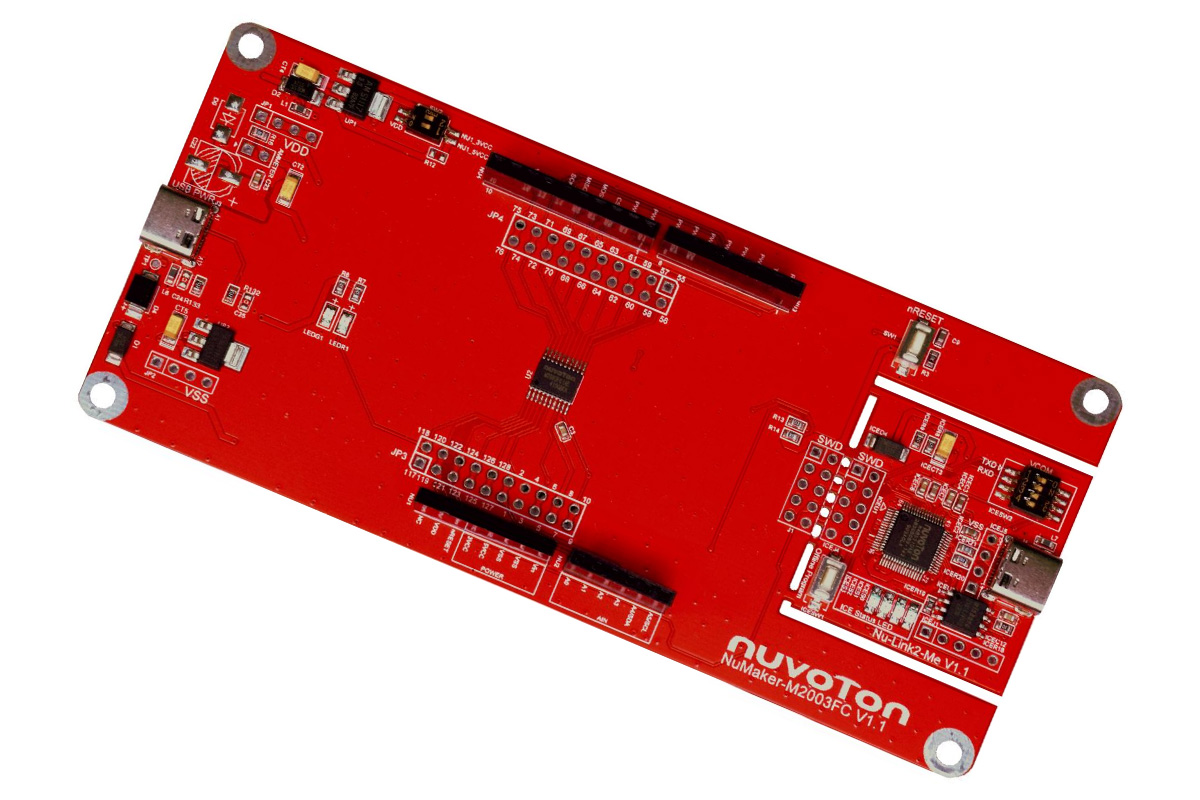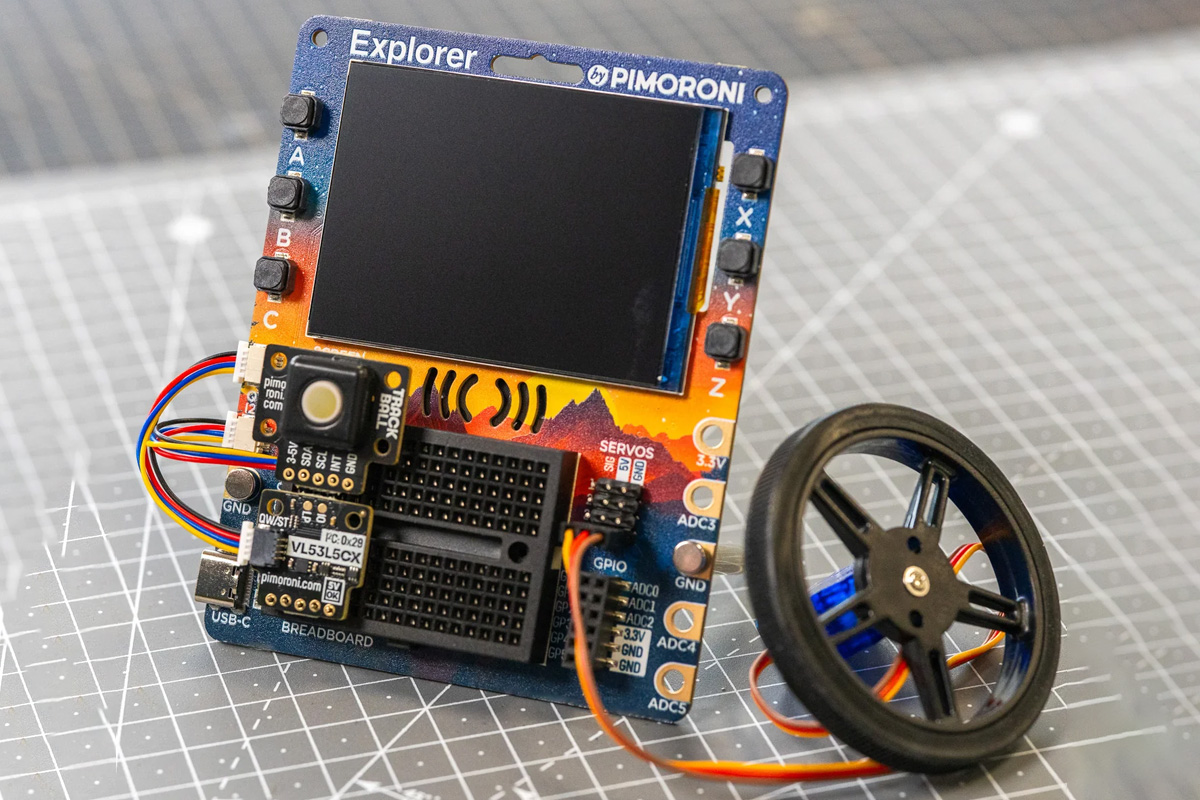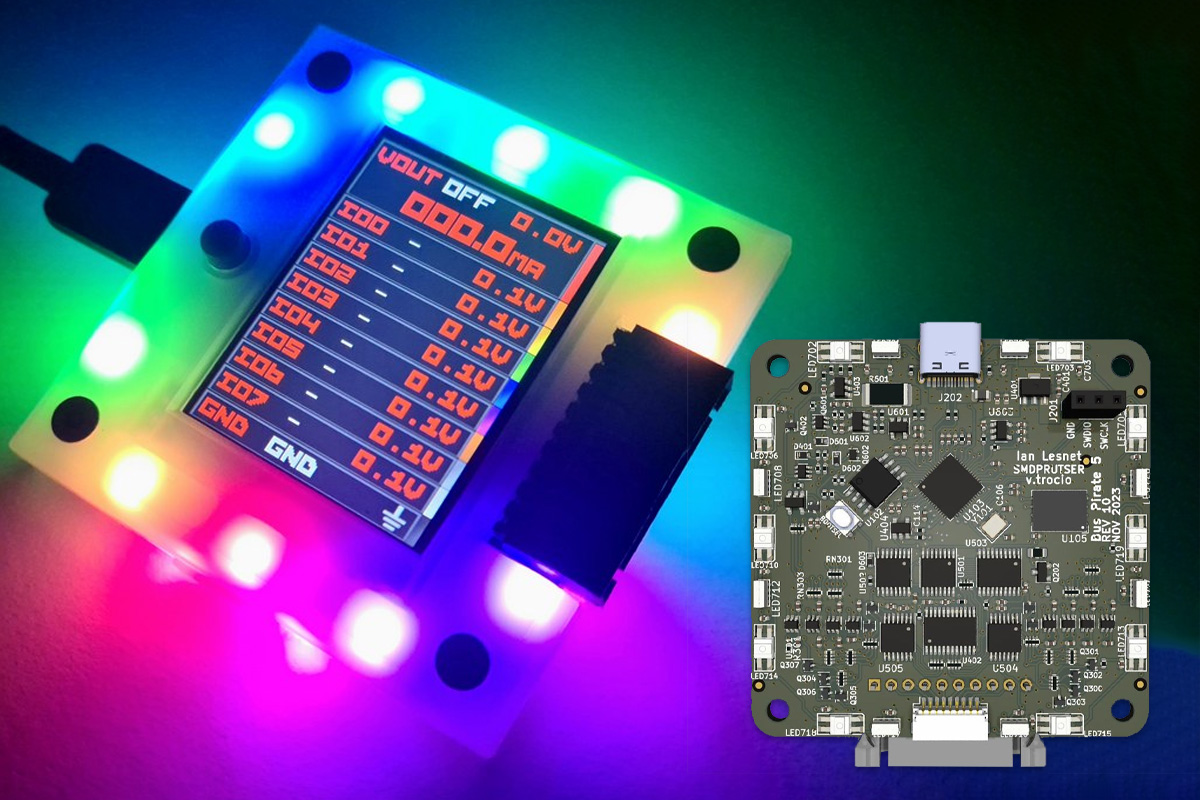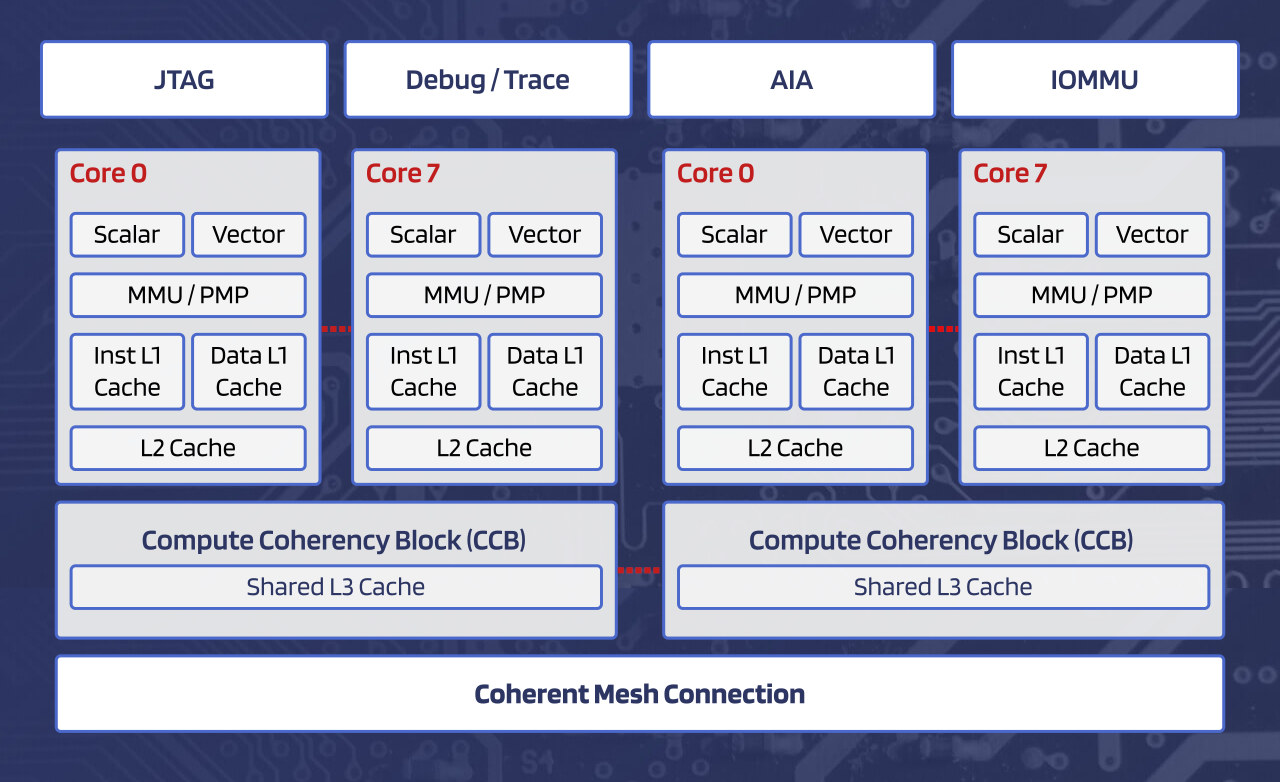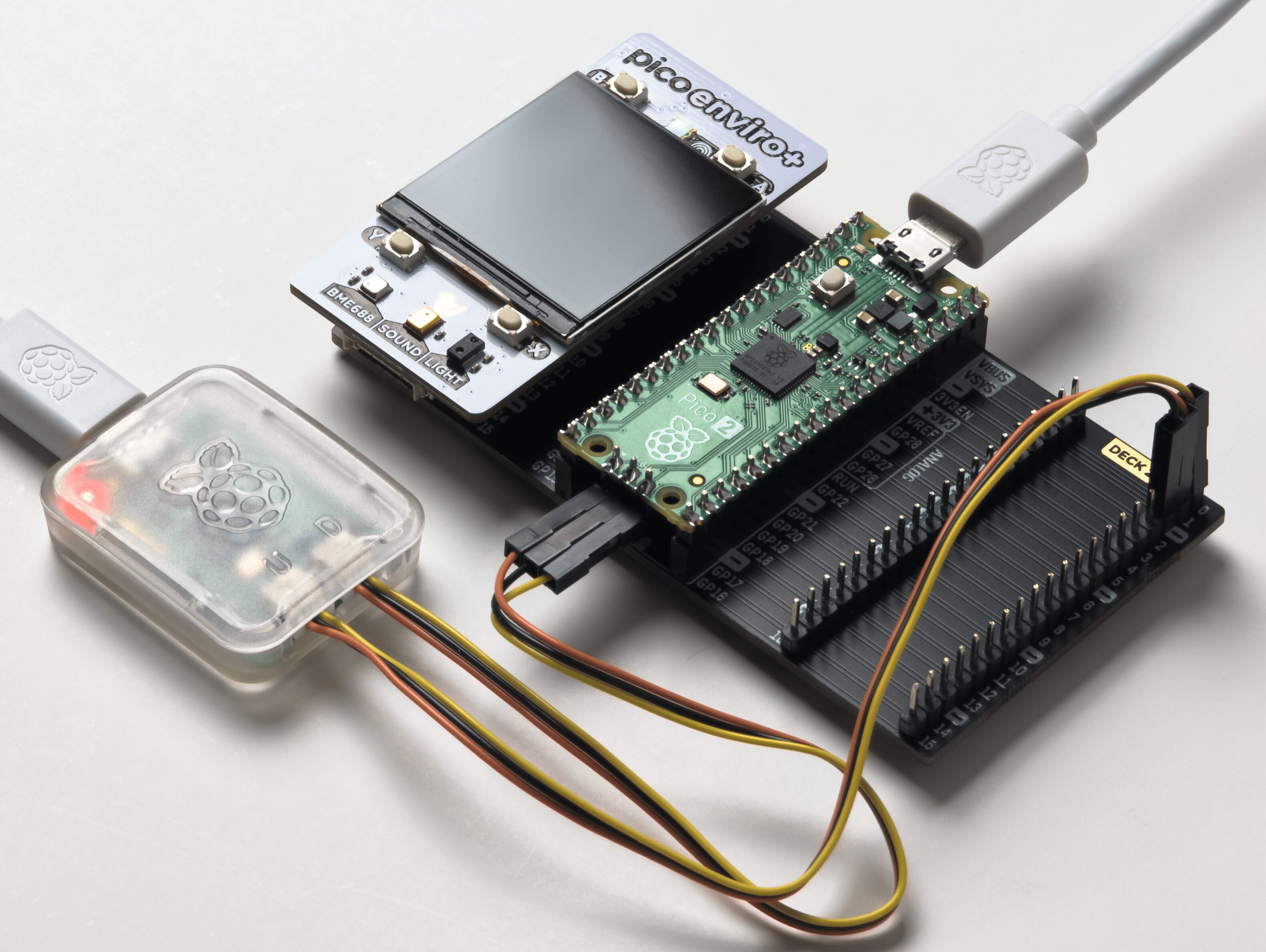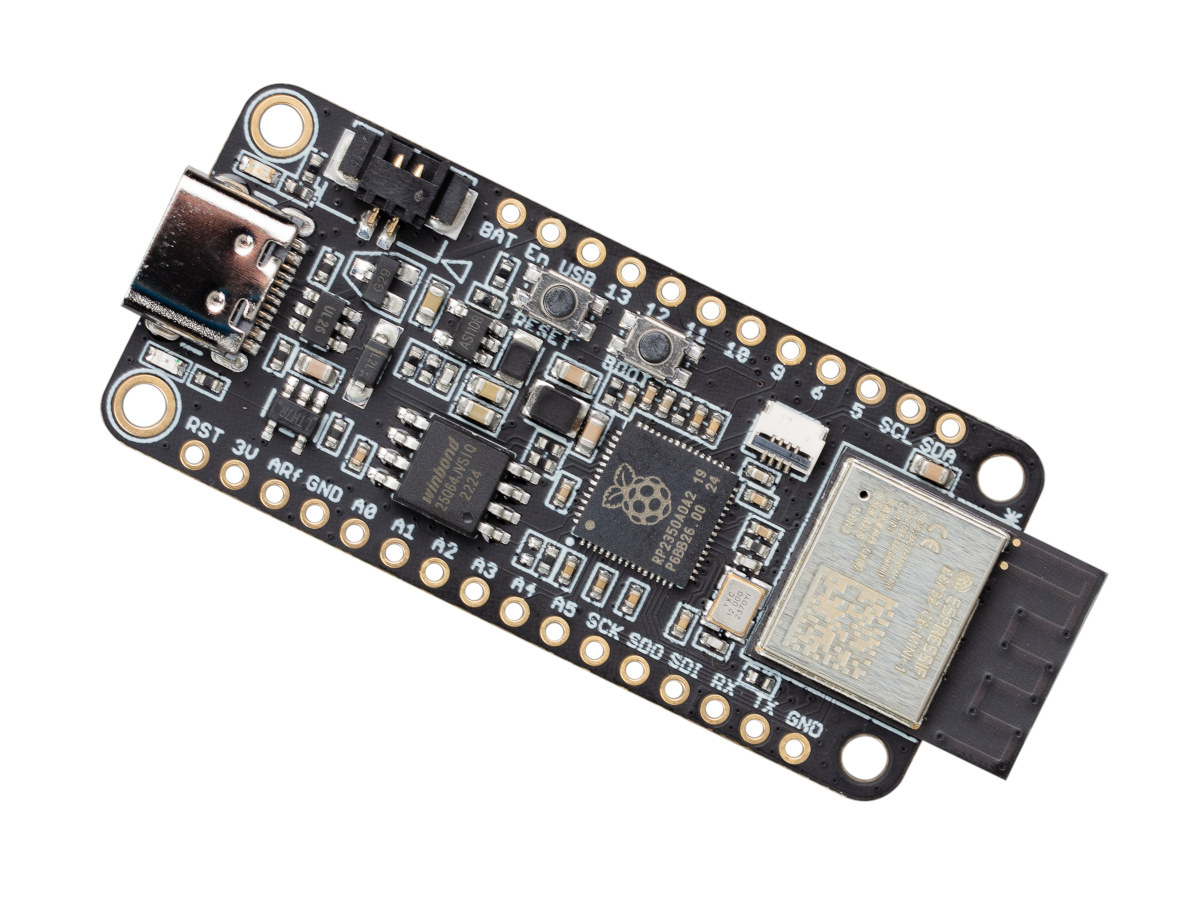Last week, we covered the Maker Go RA4M1-R4 development board, an inexpensive “clone” of the Arduino UNO R4 Minima with some small modifications like support for up to 50V DC input and a 3.3V/5V switch for I/Os. But today, I’ve come across a smaller and cheaper Renesas RA4M1 board that’s also software compatible with the Arduino UNO R4. Meet the WeAct RA4M1. The WeAct RA4M1 is mostly a breakout board for the Renesas R7FA4M1AB3CFM Arm Cortex-M4F microcontroller with two 30-pin GPIO headers, a USB-C port for power and programming, and three buttons. It offers a middle ground between the Arduino UNO R4 Minima and the tiny XIAO RA4M1 USB-C board. WeAct RA4M1 specifications: Microcontroller – Renesas RA4M1 Arm Cortex-M4F MCU @ 48 MHz with 32KB SRAM, 256KB flash USB – 1x USB Type-C port for power and programming Expansion 2x 30-pin headers with GPIO, VIN, VCC, GND 3.3V or 5V […]
Using RISC-V cores on the Raspberry Pi Pico 2 board and RP2350 MCU – From blinking an LED to building Linux
Raspberry Pi Pico 2 was released last month with a Raspberry Pi RP2350 microcontroller equipped with two Arm Cortex-M33 cores and two 32-bit RISC-V “Hazard3” cores with up to two cores usable at any time. So in this guide, we’ll show how to use the RISC-V cores on the RP2350 MCU, compare their performance against the Arm Cortex-M33 cores, and even build Linux for RISC-V for RP2350 boards that have PSRAM. Apart from the extra memory and more powerful cores, plus new features related to security and the HSTX interface, the Raspberry Pi Pico 2 and Pico will be very similar to the end user and the instructions in our article “Getting Started with Raspberry Pi Pico using MicroPython and C” remain valid. I don’t think there’s a MicroPython RISC-V image yet, so we’ll focus on running C programs on the RISC-V cores. A quick check with the Arm cores […]
Nuvoton M2003 is a low-cost Arm Cortex-M23 MCU for AIoT and Industrial applications
Nuvoton has recently launched the Nuvoton M2003 series of low-cost Arm Cortex-M23 microcontrollers which at the time of writing features M2003FC1AE and M2003XC1AE microcontrollers. Major features include a 32-bit hardware multiplier/divider, 32 KB of flash memory, 4 KB of SRAM, multiple communication interfaces (UARTs, I²C, USCI), analog peripherals (8-channel 12-bit ADC, 6-channel 16-bit PWM), and support for a wide voltage and temperature range. These features make this device useful for AIoT, industrial automation, smart homes, energy storage, and automotive electronics, and the company says the low-cost M2003 family offers a migration path from 8-bit to 32-bit designs. Feature-wise both the MCUs are the same and the only difference is in their package. The M2003FC1AE comes in a TSSOP20 package, whereas the M2003XC1AE comes in a QFN20 (3x3mm) package. The NuMaker-M2003FC development board is also offered for evaluation. Nuvoton M2003 series MCU specifications Device – Nuvoton M2003 series of MCUs M2003FC1AE […]
Pimoroni Explorer board is a Raspberry Pi RP2350-based learning platform with 2.8-inch LCD, breadboard sensors and more
The Pimoroni Explorer board is an electronic prototyping board built around the Raspberry Pi RP2350 chip with a 2.8-inch LCD screen, a speaker connector, and various I/Os, which makes it easy to build circuits, prototype projects, and even make small robots. It also features a mini breadboard, tactile buttons, and crocodile clip terminals, making it suitable for both beginners and experienced makers. The RP2350 MCU was recently released by Raspberry Pi Limited along with the $5 Raspberry Pi Pico 2 board. Since that initial release, we have seen many RP2350-based development boards like the Cytron MOTION 2350 Pro, the Bus Pirate 5XL and 6, and many other development boards released, feel free to check those out if you are looking for development boards built around the RP2350 MCU. Pimoroni Explorer board specifications Microcontroller – Raspberry Pi RP2350B MCU CPU Dual-core Arm Cortex-M33 @150MHz with Arm Trustzone for secure boot Dual-core 32-bit […]
Bus Pirate 5XL and 6 hardware debugging tools utilize Raspberry Pi RP2350A and RP2350B microcontrollers
The Bus Pirate 5XL and 6 are open-source hardware debugging tools respectively based on Raspberry Pi RP2350A and RP2350B and designed to simplify interaction with various bus protocols like 1-Wire, I2C, SPI, UART, several LEDs, and more. The idea is to send commands to a chip or sensor and get the response, without writing a single line of code making it ideal for hardware hacking and tinkering. The devices feature buffered I/O pins with voltage and current measurement, a programmable power supply with current limiting, an RGB LCD for pin status and info, and an auxiliary header for connecting logic analyzers. All these features make this device useful for applications like debugging circuits, prototyping projects, and reverse engineering devices. The new devices are updates to the Bus Pirate 5 based on Raspberry Pi RP2040 MCU. You’ll find Bus Pirate specifications for the three models in the table below. The original […]
Akeana unveils 10 RISC-V cores suitable for microcontrollers up to data center chips
Founded about three years ago, Akeana has just officially launched and announced three 32-bit and 64-bit RISC-V processor lines and SoC IP with the Akeana 100 series for 32-bit microcontrollers, the Akeana 1000 series for 64-bit processors with MMU, and the Akeana 5000 series with much higher single-thread performance and designed for laptops, data centers, and cloud infrastructure. The company also introduced Scalable Coherent Interconnect, Interrupt Controller, and IOMMU IP for building out compute subsystems based on the aforementioned RISC-V cores, as well as AI-targeted Vector RISC-V Cores and Matrix Computation IP. The design team is said to have previously worked on Marvell’s ThunderX2 server chips. Akeana 100 Series The Akeana 100 Series is a line of highly configurable processors with 32-bit RISC-V cores that support applications from embedded microcontrollers to edge gateways, to personal computing devices. Four Akeana 100 RISC-V cores are available Akeana 110 for area- and power-constrained […]
Google Pigweed SDK now supports Raspberry Pi RP2350 microcontroller
Google Pigweed, a collection of open-source libraries for embedded software development, now supports the Raspberry Pi RP2350 MCU and comes as a software development kit (Google Pigweed SDK). These libraries, also called modules, are building blocks that make embedded software development faster and more reliable. It targets tiny 32-bit microcontrollers such as STMicro STM32L452, Nordic Semi nRF52832, and the Raspberry Pi Pico line of microcontrollers. The library components have shipped in Google Pixels, Nest thermostats, robots, satellites, and drones. On August 8, the Pigweed project was released as a software development kit (SDK) in developer preview with official support for Raspberry Pi RP2350 and the associated Pico 2 development board. The new release uses the Bazel build system – a feature upstreamed into the Pico SDK by the Google Pigweed team – and a complete, open-source Clang/LLVM toolchain. The Google Pigweed SDK includes sample code, modules, and a comprehensive tutorial […]
Challenger+ RP2350 WiFi6/BLE5 board combines Raspberry Pi RP2350 MCU with ESP32-C6 WiFi 6 and Bluetooth 5.4 LE module
You don’t need to wait for the Raspberry Pi Pico 2 W to get a Raspberry Pi RP2350 board with WiFi and Bluetooth thanks to the Challenger+ RP2350 WiFi6/BLE5 board that combines an RP2350A microcontroller with an ESP32-C6 module offering 2.4 GHz WiFi 6 and Bluetooth 5.4 LE connectivity. The board follows the Adafruit Feather form factor with 28-pin through holes for I/Os making it compatible with FeatherWings add-on boards. It comes with a USB-C port for power and programming, and a JST connector plus a charging circuit for people wanting to connect a LiPo battery. Challenger+ RP2350 WiFi6/BLE5 specifications: Microcontroller – Raspberry Pi RP2350A MCU CPU Dual-core Arm Cortex-M33 processor @ 150MHz Dual-core 32-bit RISC-V processor @ 150MHz Only two cores can be used at a given time Memory – 520KB internal RAM 8KB OTP Storage Package – QFN-60; 7×7 mm Memory – 8MB PSRAM Storage – 8MB SPI […]


